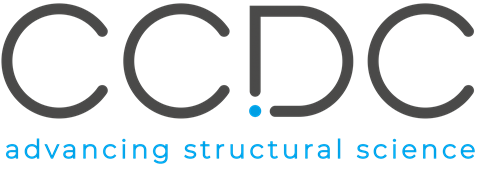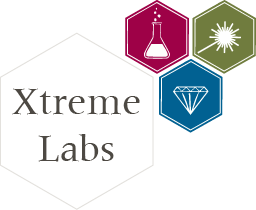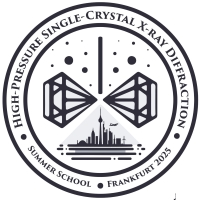Program updated!

The 3rd High-Pressure Single-Crystal X-Ray Diffraction Summer School will take place at the Goethe University Frankfurt from Monday August 4th to Friday August 8th 2025 inclusive. This five-day long School aims at providing an introduction to a novel method of single-crystal X-ray diffraction (SCXRD) structure studies at extreme pressures generated in a diamond anvil cell to early career stage scientists (master and PhD students, post-docs) and established scientists working in the field of high pressure research.
The recent methodological advancements in high-pressure SCXRD drastically extends its applications, previously mostly limited to ~20 GPa and large single crystals, now reaching hundreds of GPa and temperatures of thousands of degrees on submicron-sized polycrystalline aggregates. An overview of the necessary fundamental theoretical and methodological principals, including diamond anvil cell preparation, strategy of experiments, laser-heating, introduction to software and SCXRD, will be covered through lectures accompanied by demonstrations, hands-on sessions, and step-by-step tutorials. At the end of the School, participants are expected to be able to perform basic high pressure SCXRD experiments, as well as data processing and interpretation.
The School is building on the huge success of the previous Summer School held in Bayreuth, Germany, in 2020 and in Edinburgh, UK in 2024.
Details of the school:
The school will take place at the Geozentrum building of Goethe University Frankfurt (Altenhöferallee 1, 60438 Frankfurt am Main, Germany) and aims at welcoming 30 participants.
All participants are expected to present a poster on their research topic.
Once a participant's application is accepted, they will be asked to pay a registration fee of €150, which will cover coffee breaks, conference dinner, refreshments during the poster session, social activities, but not lunches and dinners.
Lunches will be available at the University Canteen, conveniently located within 5 walking minutes from the venue for a typical price of €5-10. Vegetarian and limited vegan meals are typically available. Residential area near the University Campus provides a variety of options for dinners.
Important dates:
Application deadline: 15.05.2025
Decision deadline: 30.05.2025
Registration fee payment deadline: 30.06.2025
Accomodation reservation deadline: 30.06.2025
Arrivals and onsite registration: 03.08.2025
If you have any question, please write an email to hpschool@chemie.uni-frankfurt.de
Members of Organizing Committee and Lecturers
Prof. Dr. Elena Bykova (Goethe University Frankfurt, Germany; local organizer)
Prof. Dr. Maxim Bykov (Goethe University Frankfurt, Germany; local organizer)
Dr. Dominique Laniel (University of Edinburgh, United Kingdom)
Prof. Dr. Bjoern Winkler (Goethe University Frankfurt, Germany)
Prof. Dr. Vitali Prakapenka (University of Chicago, USA)
Dr. Dominik Spahr (Goethe University Frankfurt, Germany)
Dr. Andrii Aslandukov (Goethe University Frankfurt, Germany)
Dr. Fariia I. Akbar (Goethe University Frankfurt, Germany)
Prof. Dr. Leonid Dubrovinsky (University of Bayreuth, Germany)
Prof. Dr. Natalia Dubrovinskaia (University of Bayreuth, Germany)
Summer School Plan
The recent developments in high-pressure single-crystal X-ray diffraction are gamechangers for our field of research. As developers and experts of this method, we feel that it is essential for the community to learn about this approach, hence the organisation of the School. The School will be roughly divided into five learning modules:
i) Experimental basics of high pressure;
ii) Fundamentals of crystallography and single-crystal X-ray diffraction;
iii) Tools, methods and software for single-crystal X-ray diffraction;
iv) Examples and applications; and
v) Hands-on workshops.
Due to the emphasis on the attendees being able to use this technique by the end of the summer school, about 40% of the time will be spent on the hands-on workshop.
i) The Experimental basics high-pressure module covers an introduction to diamond anvil cells (DACs) and their preparation, pressure determination, and equations of state. It includes methods of heating and cooling in DACs, such as resistive and laser heating, and cryogenic cooling. The module also introduces synchrotron X-ray sources, focusing on the capabilities of synchrotron facilities for single-crystal X-ray diffraction in DACs.
ii) The Fundamentals of crystallography and single-crystal X-ray diffraction module covers essential topics in crystallography and diffraction. Attendees will be introduced to crystal symmetry, including symmetry operations, space groups, and reflection conditions. The module will also explain X-ray diffraction principles, Bragg's Law, and the advantages of single-crystal X-ray diffraction. Attendees will gain insights into challenges and approaches to solving crystal structures, including the phase problem and Fourier transformation. Additionally, the lectures will provide a short historical overview of high-pressure crystallography and its development, highlighting double-stage DACs and ultra-high pressure studies.
iii) The Tools, methods, and software for single-crystal X-ray diffraction module covers essential topics in data processing, software utilization, and crystallographic analysis. Attendees will be introduced to the CrysAlisPro software package, including data conversion, peak search, indexing, and intensity extraction. The module also explores crystal structure visualization using the VESTA software. Participants will gain insights into OLEX2, a software package for single crystal data treatment and refinement. The module also addresses common issues in high-pressure datasets and helpful tools for data validation. Techniques for identifying twinned crystals, refining twinned data, and understanding warning signs of twinning will be covered. Disorder and modulation, and how to account for them, will also be part of the learning material.
iv) The Science lectures will provide the attendees with scientific cases highlighting the power of the novel methodology for high-pressure single-crystal X-ray diffraction. These lectures will cover different subfields of high-pressure research, namely physics, chemistry and geology.
v) The Hands-on workshops will give the attendees the opportunity to themselves test the knowledge learned during the lectures and gain a practical understanding of the various concepts and software. This includes data analysis in the CrysalisPro software, structure determination and refinement in the OLEX2 software and structure visualisation using VESTA. The participants will be divided into small subgroup of about five individuals, and training datasets of increasing difficulty will be provided to them along with step-by-step instructions. Instructors will circulate the rooms to help out with any difficulties. The instructors will be some of the organizers as well as PhD and post-doctoral students at the Goehte University of Frankfurt.
Supported by





